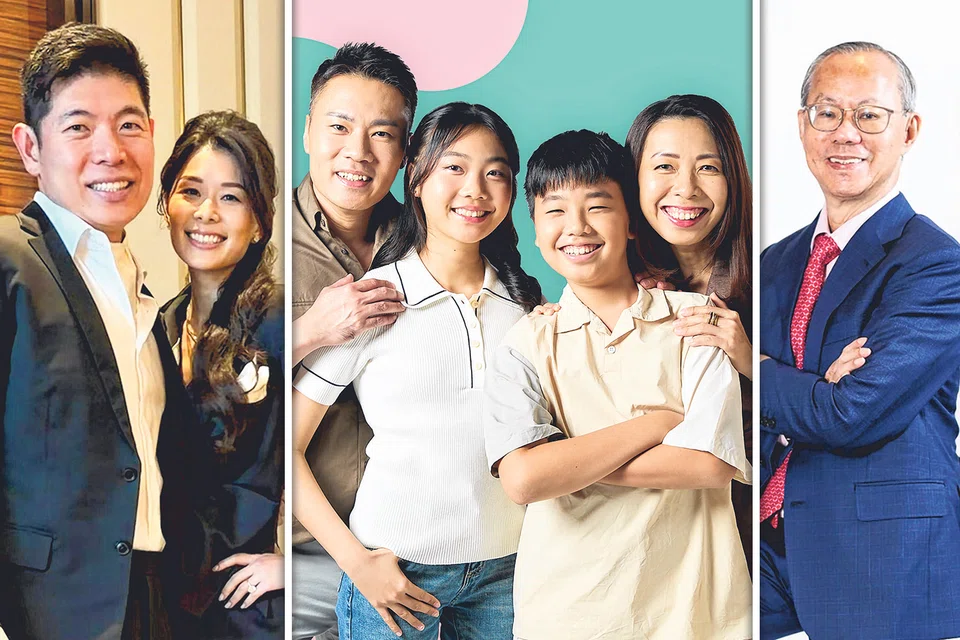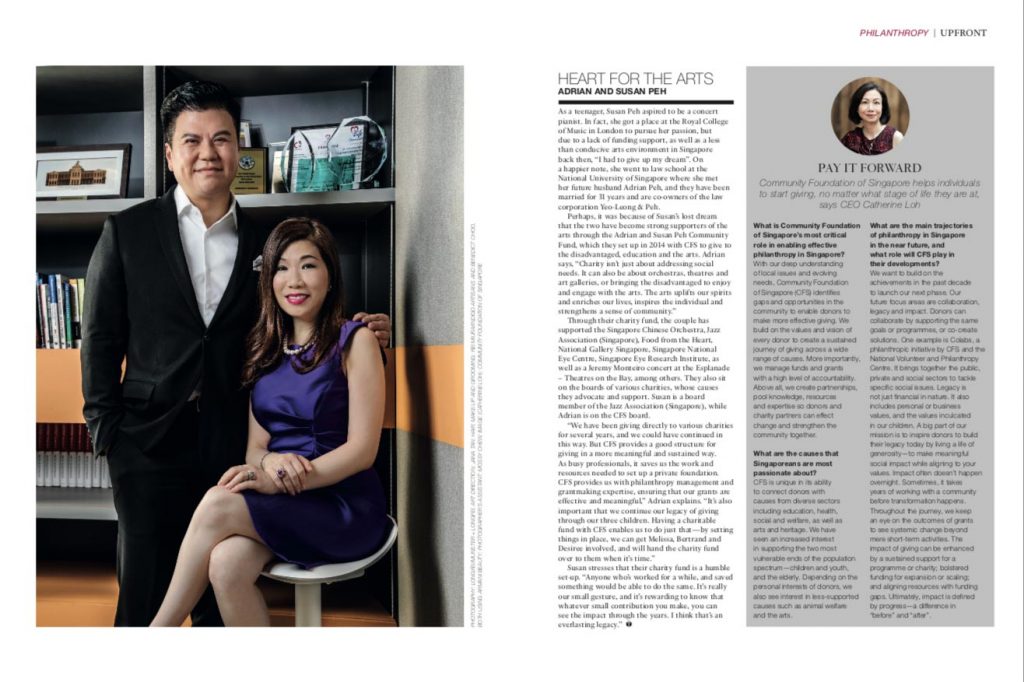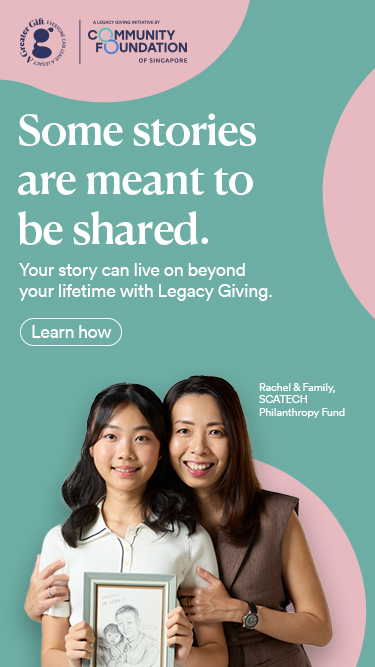Singapore Tatler: Living Legacy


More people are starting to think about philanthropy and giving back, instead of leaving it as a post-retirement consideration. Thio Shen Yi and Stefanie Yuen Thio, and Adrian and Susan Peh tell Singapore Tatler how they are making more strategic and effective giving through their private charity funds with the Community Foundation of Singapore.
Read more.
Courtesy of Singapore Tatler, October 2018
More people are starting to think about philanthropy and giving back, instead of leaving it as a post-retirement consideration. Thio Shen Yi and Stefanie Yuen Thio, and Adrian and Susan Peh tell Singapore Tatler how they are making more strategic and effective giving through their private charity funds with the Community Foundation of Singapore.
Read more.
Courtesy of Singapore Tatler, October 2018
- Related Topics For You: CHARITY STORIES, DONOR STORIES, DONOR-ADVISED FUND, LEGACY GIVING, NEWS, STORIES OF IMPACT




